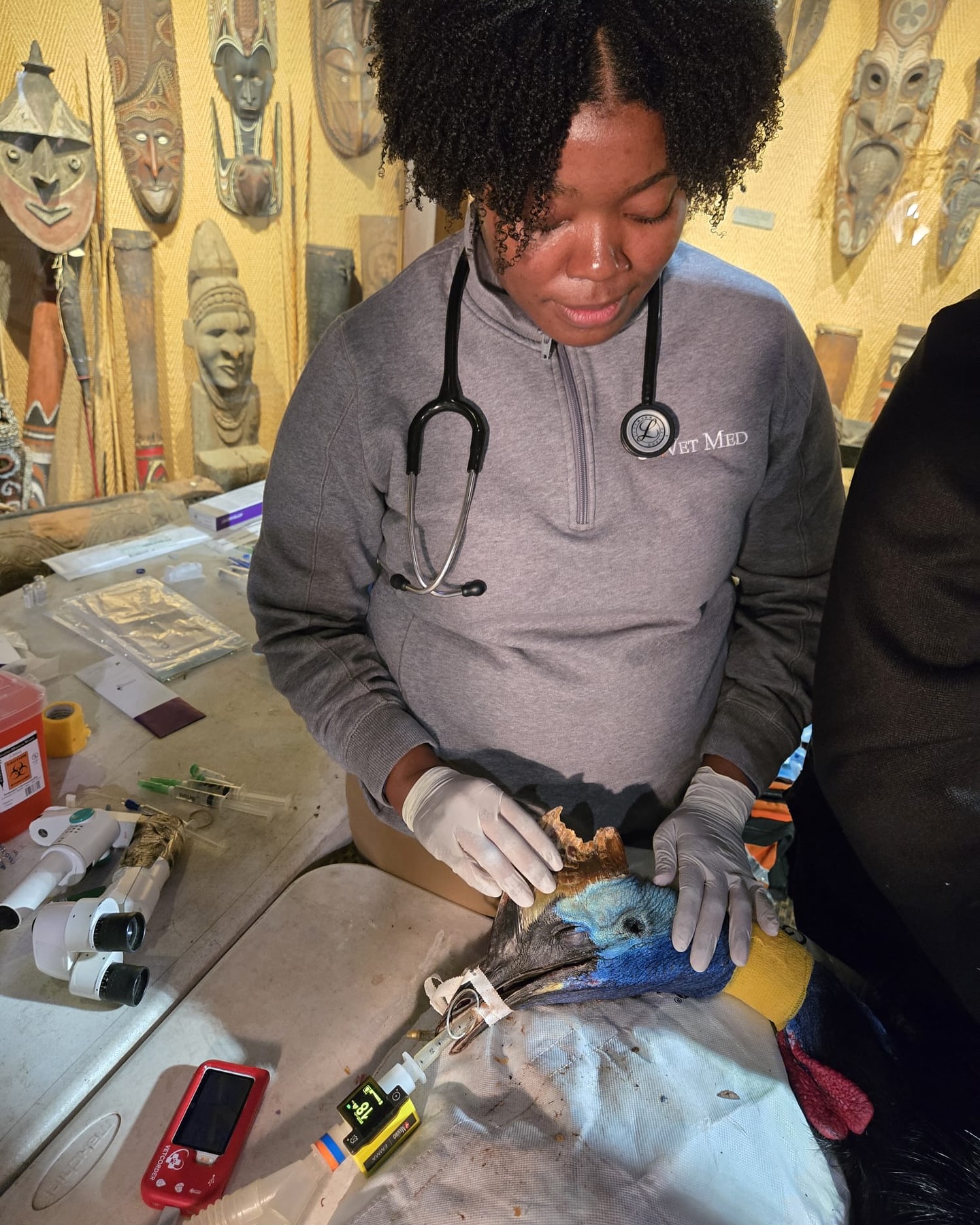- Understanding the role of the veterinary team in zoo animal health care.
- The importance of veterinary care for cassowaries, focusing on osteoarthritis treatment.
- Details of the immobilization process and collaboration between zoo and veterinary staff.
- Cassowary species overview and their environmental significance.
- Conservation insights related to cassowaries and zoo management practices.
Taking good care of the health and well-being of wild animals in a zoo setting is a detailed process requiring specialized knowledge and expert collaboration. Recently, a significant event unfolded at the St. Augustine Alligator Farm Zoological Park involving Humphrey, a male cassowary. The veterinary team from the University of Florida (UF) provided care for Humphrey in a high-stakes procedure that emphasized the importance of top-notch veterinary care for zoo animals.
Understanding the role of the veterinary team in zoo animal health care is crucial to grasp the value they bring to wildlife conservation. Veterinary professionals specializing in zoological medicine, like those from UF, conduct field services that include comprehensive physical examinations, vaccinations, and critical interventions for health issues such as osteoarthritis. In a zoo setting, the health of animals is a shared responsibility between veterinary teams and zoo staff. Each team brings a wealth of expertise, ensuring the animals receive care that promotes their health and longevity.
Humphrey, like other cassowaries, serves as a vital ambassador for his species. As part of his regular health management, Humphrey underwent a procedure to relieve discomfort from osteoarthritis, a common concern among aging animals. The joint injection aimed at easing his historic osteoarthritis reflects advancements in veterinary care. These treatments are meticulously planned to minimize stress and maximize therapeutic outcomes, which is especially important for high-risk animals like the cassowary.
Immobilization of potentially dangerous animals such as cassowaries is inherently complex and requires considerable planning and cooperation. The UF veterinary team, alongside zoo personnel, executed a flawless process, confirming the success of such collaborative efforts. Coordination, right from logistical planning to execution, is pivotal in handling high-risk immobilizations. Skilled professionals conduct these operations with precision to prevent complications and provide appropriate care swiftly and safely.
Cassowaries, native to Australia and New Guinea, are recognized for their striking appearance and ecological value. They play an essential role in their habitats by spreading seeds, thereby supporting biodiversity and forest growth. Their distinct features, including bright blue faces and imposing casques, make them intriguing subjects for both ecological research and public fascination.
Conservation insights related to cassowaries highlight the challenges they face in the wild, such as habitat loss and human-wildlife conflict. Zoos act as conservation centers, maintaining genetic pools critical for such threatened species. Housing and caring for cassowaries within a zoo environment also offer the public an opportunity to learn about and engage with these magnificent birds, fostering a deeper understanding and commitment to wildlife preservation.
As zoo management practices continue to evolve, the integration of rigorous veterinary care remains a cornerstone for the welfare of both the individual animals and the species they represent. Through educational encounters and comprehensive care, institutions like St. Augustine Alligator Farm and the University of Florida’s veterinary services contribute significantly to conservation efforts.
*****
Source Description
Taking good care of Humpfrey, our male Cassowary 💙 If you were visiting the Zoo recently and noticed a sign on the closed doors of Gomek’s pavilion, it was because the amazing veterinary team from @ufzoomed was inside.
Here’s what happened:
“The UF Zoological Medicine service conducted an immobilization on an adult male cassowary at St. Augustine Alligator Farm Zoological Park at Thursday’s field service!
Dr. Capobianco completed a physical exam, administered vaccines, collected blood samples, and with the assistance of University of Florida College of Veterinary Medicine large animal surgeon Dr. Bierdrzycki performed a joint injection to provide relief for historic osteoarthritis.
High risk immobilizations of dangerous animals are complex and require a lot of planning and manpower. The veterinary team worked alongside the zoo staff to ensure this event went smoothly and without complication.
Cassowaries are large flightless birds native to Australia and New Guinea. These formidable birds are characterized by their bright blue faces, large head casques, and 3-toed feet that include a large dagger like claw.”
Caption from UF Zoo Medicine Facebook post and photos by Kara, UF Veterinary Technician. Find more photos on their social media accounts.


